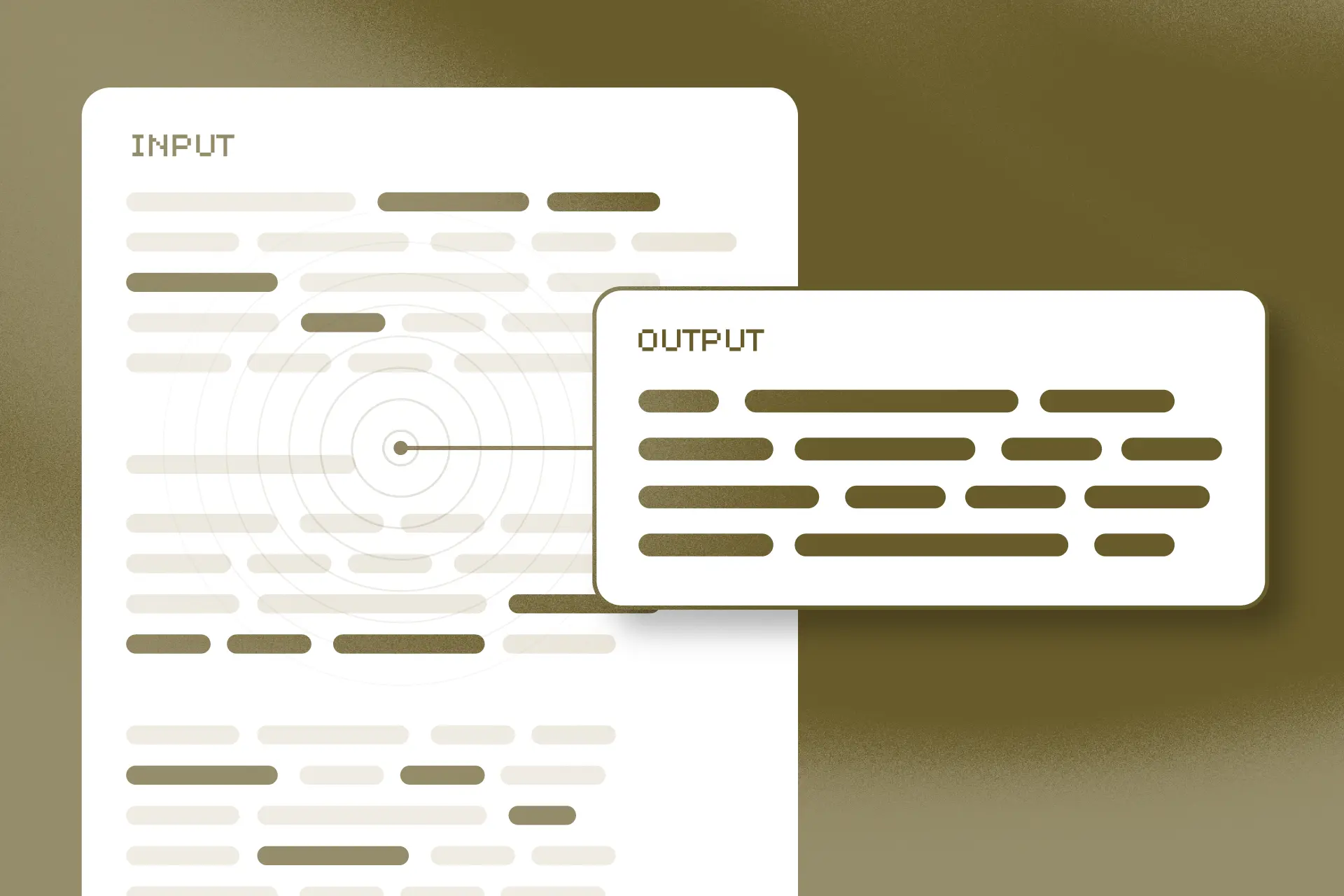
Brand as business therapy: Preparing for the future of professional services
"Working with you was like going to business therapy."
We've heard this phrase countless times from clients over the years. At first, it caught us off guard. We thought we were in the business of creating logos, websites, and marketing materials. What we discovered is that we were actually in the business of something much more profound: helping companies understand who they really are.
The therapy analogy isn't accidental
The process we've built to create durable visual and verbal identities for our clients works precisely because it functions like therapy. Just as a good therapist helps you articulate feelings and truths you know but can't express, our brand development process uncovers deep insights about businesses that leaders instinctively understand but struggle to communicate.
These aren't surface-level insights about color palettes or taglines. We're talking about fundamental questions: What problem do you solve better than anyone else? What do you believe that your competitors don't? Why does your team get out of bed in the morning? What would your industry lose if your company disappeared tomorrow?
The answers to these questions aren't found in market research or competitive analysis. They're discovered through honest, sometimes uncomfortable conversations. Similar to what happens in a therapist's office. And just like therapy, the real value is in the process itself.
Your problems are real (and they're getting worse)
Let's be honest about what's happening in professional services right now. The challenges you're facing aren't temporary market fluctuations or economic headwinds. They're structural shifts that are changing how business gets done.
Lack of differentiation is commonplace. When everyone offers "strategic thinking" and "innovative solutions," these phrases become meaningless. Clients can't tell one firm from another, so they default to the lowest price.
Pricing pressure is intensifying as commoditization accelerates. What used to be specialized knowledge is now available through automation, templates, and AI tools. Clients are questioning why they should pay premium rates for work they suspect could be done cheaper, or even free.
Difficulty attracting talent reflects a deeper problem: the best people want to work for companies with an obvious purpose and vision. Generic mission statements and vague value propositions don't inspire anyone, especially not the people who can drive your business.
These aren't separate problems. They're symptoms of the same underlying issue: an unclear brand identity.
Brand investment as strategic insurance
Here's where most brand consultants would launch into a sales pitch about logos and messaging. But that misses the point entirely. Investing in your brand isn't about prettier PowerPoint templates or snappier elevator pitches (though those might be byproducts). It's about building organizational resilience for an uncertain future.
Strong branding forces you to confront uncomfortable truths about your business. It requires you to choose what you stand for. It demands that you articulate your unique value proposition clearly enough that a fifth-grader could understand it. Most importantly, it creates alignment within your organization about who you are and where you're going.
This clarity becomes your competitive moat. When disruption comes, companies with strong brand foundations can pivot more quickly and confidently. They know what to preserve and what to abandon. They can communicate change to stakeholders without losing their identity. They attract the talent and clients who want to be part of the journey, not just the transaction.
The disruption nobody wants to talk about
Here's the uncomfortable truth that keeps me up at night: I'm not convinced that anyone will pay for our core offerings in the next 3-5 years. And that's not just true for brand consultancies, it applies to architects, accountants, lawyers, financial service providers, and virtually every other professional service.
This isn't hyperbole or fear-mongering. AI tools are changing the value equation for knowledge work. Tasks that used to require years of training and experience can now be accomplished in minutes.
The question isn't whether this disruption will happen. The question is whether you'll be ready for it.
Scary or exciting? (The choice is yours)
I recently had a conversation with a law firm partner who was lamenting the rise of legal AI tools. "Our junior associates' work is being commoditized," he said. "What are we supposed to do?"
I asked him: "What if instead of seeing this as a threat to your junior associates, you saw it as an opportunity ? What if you could offer clients better outcomes at lower costs while maintaining your margins? What if this technology freed your people to focus on the strategic, creative, relationship-driven work that only humans can do?"
His expression shifted from worry to curiosity. Same disruption, different frame.
This is the choice every professional service firm faces: Will you view change as something that happens to you, or something you can shape and leverage? The answer depends entirely on two factors: your team's mindset and your ability to articulate why you're uniquely positioned to add value in the new landscape.
Building your coalition for change
The companies that thrive in the next decade won't be the ones with the best technology or the most resources. They'll be the ones with the strongest coalitions—teams that believe in the mission, clients who see them as indispensable partners, and a network of relationships that creates mutual value.
Building these coalitions requires more than good intentions. It requires clarity about your purpose, consistency in your communication, and courage to make difficult choices about who you serve and how you serve them.
This is where the "business therapy" metaphor becomes most relevant. Just as personal therapy helps you understand your patterns and choose healthier responses, brand work helps organizations understand their habits and choose more intentional strategies.
The time to act is now
If you're still reading, you're probably feeling some combination of anxiety and opportunity. That's exactly where you should be. The future of professional services will be determined not by those who wait for clarity, but by those who act despite uncertainty.
Investing in your brand today, not just the visual identity, but the deeper work of understanding and articulating your value, is the best insurance policy you can buy for an uncertain future. It won't guarantee success, but it will give you the clarity and confidence to navigate what comes next.
The disruption is real. The opportunity is real too. The question is: Do you have the right partners beside you to help you see the difference?
Ready to start your own "business therapy" session? The first step is often the hardest: admitting that the old ways of doing things might not work forever. But once you take that step, everything becomes possible.



